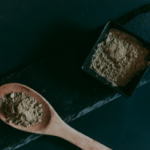Breast reduction surgery is a surgical procedure that reduces, removes, or changes the form or size of one or both breasts. It is most often performed on women with large breasts who experience discomfort and physical distress due to their size.
When breast reduction surgery is performed, it usually also includes an operation to reduce back pain and other sources of bodily discomfort associated with excessive breast bulk.

This article will look at the factors to consider when getting breast reduction, signs that you need breast reduction, and the benefits of breast reduction.
FACTORS TO CONSIDER IN GETTING BREAST REDUCTION
You might not get your desired cup size.
Breast reduction is not a one size fits all procedure. The result of any breast reduction will differ between individuals depending on their breast shape, tissue density, skin elasticity, and a more general genetic predisposition to breast size variation.
In assessing different patients for breast reduction, surgeons need to consider these variables before performing a reduction.
Risks of infection and scarring.
There are side effects to undergoing any surgical procedure. These include the risks inherent in any surgery and other potential risks that may arise during the postoperative period. A breast reduction has been linked with a higher risk of infection and increased pain after the procedure compared to other types of surgery.
The patient must also consider the risks associated with scarring, asymmetry, stretch marks, breast sagging, and general appearance after breast reduction surgery.
Could affect breastfeeding.
Breast reduction can affect breastfeeding. While research has found that large breasts are not a barrier to successful breastfeeding, there is no specific evidence showing that breast reductions and enhanced breast conditions will improve breastfeeding outcomes.
The best way to ensure your baby’s good health is to make sure you have a healthy diet and lifestyle.
You might lose sensitivity.
Some women have learned to cope with large breasts, but some have found that their breasts become less sensitive after breast reduction. This can signify over-sensitized breast tissue and needing a more conservative surgery.
Lengthy recovery period.
As with any surgical procedure, there is generally a long recovery period following a breast reduction. Patients will want to consider how they will cope with the risks associated with pain and scarring during this time.
They should also consider whether they wish to wait to have children or if the procedure is something they wish to have done now.
You might need or want additional surgery.
Patients must be aware that breast reduction is not always the end of their breast surgery. Patients may want additional procedures to enhance their breasts or need further procedures to correct any adverse outcomes from the initial surgery – for example, if the breast reduction did not achieve the desired cup size reduction.
SIGNS THAT YOU NEED BREAST REDUCTION
Struggling to find bras that fit and offer adequate breast support.
Finding a bra that fits well is important to wear a bra daily and effectively support the breasts. This is because the breast, in addition to its structural function, provides significant stimulation through tactile sensation.
Have large breasts for your age.
Women with large breasts usually experience back pain because of the extra weight and volume of their breast tissue. The upper body shape can also be affected by excess breast tissue when it becomes too large for the body to support it.
Women usually begin their period at a younger age if they have larger breasts than what is considered normal for their age group (see diagram). The amount of weight that a woman’s breast has relative to her total body weight will determine how much back pain she experiences.
Have shoulder grooves from wearing bra straps.
Wearing a bra can cause shoulder grooves under the skin. Once these grooves form, they are more likely to be permanent. When women discover these signs of excessive breast weight early, they can begin to reduce the size of their breast tissue and avoid shoulder pain.
Suffer from neck, shoulder, head, and back pain.
These signs are usually caused by the extra weight causing the breasts to create pain and discomfort. The level of discomfort often reaches a point where it affects how a woman moves or performs certain activities, such as vacuuming, going up and downstairs, or even picking up children.
Worry about your breast size and shape when looking in the mirror.
This symptom is usually caused by excessive breast tissue weighing on the back, shoulders, head, and neck. Extra breast tissue can also cause pain from muscle tension in these areas of the body when a woman stands up or leans forward as she looks in the mirror at herself.
Cannot stand up or sit straight for long.
The added weight of the breasts can cause women to compress their spine and lose proper posture. This can happen when a woman’s breast tissue is too large for her back and body. The weight can also affect a woman’s breathing, as it affects her neck and shoulder muscles that are directly connected to her lungs.
Find clothing styles more difficult to fit into.
This symptom is usually caused by larger breasts causing a woman’s waistline to appear wider. The result is that clothing styles that are meant to be fitted will look loose on a woman with large breasts but trim in the waist, like many styles found on the runway or popular celebrities in movies or magazines.
Rashes below your breasts due to skin rubbing.
This is usually caused by the breast tissue being too big for the woman’s body, resulting in skin rubbing against itself. The rash that results can be painful and/or itchy.
BENEFITS OF BREAST REDUCTION SURGERY
Enhance posture.
Excess breast tissue can cause the lumbar spine to be compressed and the shoulders to be elevated. This is known as undue compression of the spinal column and causes a curve in the thoracic spine.
When this happens, muscles, ligaments, and tendons throughout the body are affected because they support a portion of the body that is no longer supported by normal structure.
Reduce breast skin itching.
Excess breast tissue can cause skin stretching, which causes the skin to become irritated and itchy. Reducing the size of the breasts reduces skin irritation and itching.
Feel more confident about your appearance.
Many women feel self-conscious about their appearance when they have large breasts. Smaller breasts are often considered desirable by society because they are associated with youthfulness and femininity.
A woman who has smaller breasts is going to find it easier to feel comfortable during activities such as a romantic night out with her spouse or boyfriend because she will be able to wear clothes that fit her body type rather than having to wear clothing that is too tight or too loose due to her body shape or breast size.
Relief from chronic shoulder, neck, and back pain.
Women with large breasts can experience shoulder pain due to the added weight and tension placed on the shoulder muscles. By reducing the breast size, a woman will notice relief from chronic shoulder, neck, and back pain.
Makes physical activity easier.
Having large breasts can make physical activity uncomfortable because of the friction and irritation of the breast tissue. This irritation causes a lasting sensation of discomfort in the breasts, which can cause women to stop participating in physical activity.
Shop for clothes and bras that you like.
This benefit is because smaller-sized breasts are more trendy with clothing styles. A woman who has small breasts will find it easier to shop for clothes and bras when she is looking for a style that is in fashion.
Join 25,000+ smart readers—don’t miss out!







